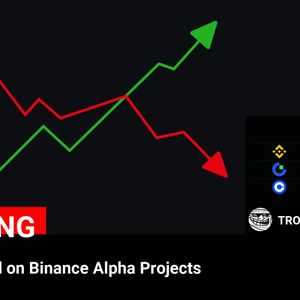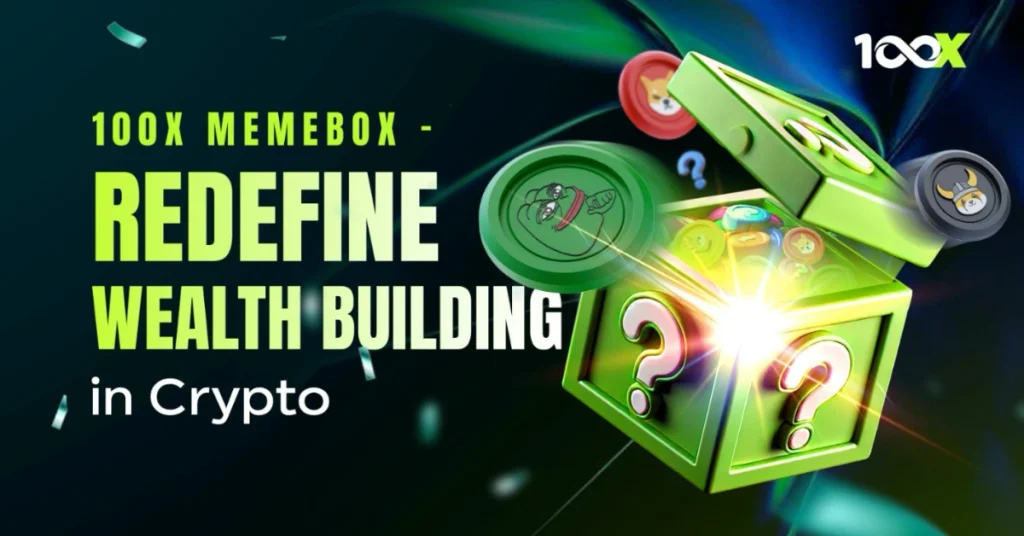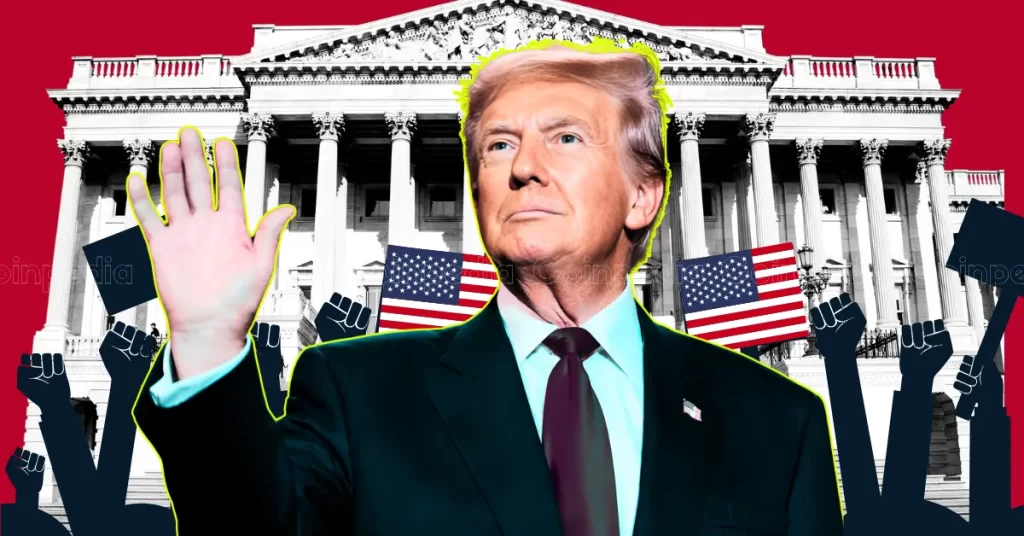While investments and interest in crypto adoption have skyrocketed since the start of this year, there hasn’t been any actual integration of usage for retail investors on a large scale. But this seems to have changed now, with Panama showing a greenlight for Bitcoin and Ethereum payments as part of their plan to help allow free flow of crypto in the economy. Naturally, this news created much enthusiasm among investors, as the development marked crypto’s entry into actual real-world use cases for everyone—recognized by the government. This, in turn, has also resulted in a surge in demand for projects that offer real-world use cases leveraging blockchain technology. Citizens Can Pay For Tax and City Services Via Crypto In a move that feels more real-world than theoretical, Panama City residents will soon be able to use crypto for everyday civic responsibilities. Whether it’s paying taxes, clearing parking tickets, applying for permits, or even booking a bus ride, locals will have the option to transact in Bitcoin, Ether, USDC, or USDT. It’s not a symbolic step—it’s a functional one. Mayor Mayer Mizrachi announced that the city’s administration found a legally sound workaround to accept crypto without needing new legislation. Since local regulations require government bodies to accept payments in USD, the city partnered with a bank that will convert crypto payments into fiat instantly. This way, the municipality gets its dollars, and citizens get the freedom to pay with digital assets. What makes this initiative more impactful is its simplicity. No overhauls, no long legislative delays—just direct integration with infrastructure already in place. The result? A framework that could be replicated by other jurisdictions across the globe. As other cities like Lugano, Vancouver, and regions in the U.S. experiment with similar models, Panama’s implementation sets a precedent: that municipal crypto adoption doesn’t need to be complex to be effective. It’s a reminder that blockchain’s promise doesn’t lie only in speculation or innovation buzzwords—but in how seamlessly it can blend into daily life. For projects built around real-world use cases, this growing momentum offers fertile ground. The next leg of crypto growth may not come from hype—it might come from city hall. Best Crypto to Buy Now - Utility Projects With Huge Potential SUBBD – (SUBBD) Panama’s adoption of crypto for public payments proves something crucial: blockchain isn’t waiting for institutional approval anymore—it’s being shaped by those using it to solve direct, real-world problems. And within the creator economy, SUBBD reflects that same ethos. Built to disrupt the traditional influencer space, SUBBD doesn’t pitch itself as a “Web3 solution”—it actually creates an economic system that gives power, transparency, and monetization tools directly to content creators. Instead of creators being trapped in opaque monetization systems controlled by platforms, SUBBD introduces a model where their audience becomes their economy. Tokenized subscriptions, exclusive AI content generation, real-time support tools—all layered on the $SUBBD token—create a system where users aren’t just followers, but participants. Every interaction becomes a micro-economy, tracked and powered on-chain. It’s not just about creators earning more—it’s about audiences owning more of the experience. That’s where the link to broader crypto adoption clicks in. Top crypto content creators like ClayBro have already featured the project in their videos on YouTube, while speaking to its merit as a high-potential initiative. Just like Panama found a way to work crypto into its payment structure without disrupting its foundation, SUBBD integrates blockchain without alienating the mainstream user. That subtlety makes a difference. As governments and platforms shift toward recognizing the value of decentralization, projects like SUBBD—already operating with built-in real-world utility—aren’t just ready for the change. They are the change. Solaxy – (SOLX) Panama’s decision to let crypto function within its economic structure echoes a broader trend—real-world adoption doesn’t need to scream “disruption.” Sometimes, it just needs to work quietly in the background. Solaxy gets that. As a Layer-2 designed to support both Ethereum and Solana, it isn’t about rewriting the rules. It’s about making the existing frameworks smoother, faster, and more scalable. Solaxy is engineered for practical implementation—offering a bridge that lets developers and users interact with Ethereum or Solana protocols through a single chain without being bottlenecked by high gas fees or clunky execution. Its cross-chain architecture is what makes it relevant in conversations like Panama’s. Imagine a city accepting crypto payments and routing transactions through Solaxy to reduce congestion and processing delays. That’s not sci-fi—that’s infrastructure-level innovation possibly waiting to be deployed. And beyond its tech, the project has real traction. Solaxy's presale was one of the strongest this year, raising over $30 million and drawing significant attention from both institutional and retail circles. As blockchain-based governance and public services start to trend, especially in emerging economies, Solaxy’s foundational approach positions it as more than just another layer—it becomes the plumbing for an entirely new kind of internet economy. When practical problems like scalability, security, and accessibility are solved at the base layer, adoption stops being a challenge and becomes a default. That’s where Solaxy aims to be—not flashy, but fundamental. Best Wallet Token – (BEST) Panama’s announcement might seem like a headline move, but its real impact lies in infrastructure—the quiet systems that make adoption sustainable. Best Wallet Token , with its presale is operating in that same spirit. Its main product doesn’t just store digital assets; it builds an ecosystem around making those assets actually usable. That’s what transforms speculation into function. Essentially, Best Wallet is a non-custodial multi-asset wallet that supports over 60 chains. But it doesn’t stop at access—it adds context. From the easy-access DEX facility and staking tools to its presale aggregator and airdrop tracking feature, Best Wallet turns passive holders into active participants. You can buy presale tokens directly through its dashboard, monitor your entire portfolio’s performance, and earn high-yield staking rewards—all without leaving the app. Over $11M Raised & Counting! 💎The Best Wallet ecosystem keeps growing, and early holders are locking in their spot. 🚀Now is your chance to secure exclusive rewards and be part of the next-gen crypto wallet.Don't miss out! 👉 https://t.co/eMjBsXbv1H pic.twitter.com/p3E6BvxnDS — Best Wallet (@BestWalletHQ) March 14, 2025 In a world where municipalities accept crypto for taxes, and users want to manage their entire digital life from one interface, Best Wallet steps in as that bridge. It doesn’t market itself as a revolution—it just makes daily interaction with crypto smoother, safer, and more rewarding. The fact that it’s launched airdrop campaigns and already generated significant buzz means that the market recognizes this need. As global infrastructure begins to tilt toward crypto-normalization—both at the city level like in Panama and at the personal finance level—tools like Best Wallet don’t just grow. They become essential. Conclusion Panama's decision to allow crypto payments for public services reflects a broader shift in how digital assets are being absorbed into everyday life. It’s no longer just about holding tokens—it’s about using them in ways that make sense within existing systems. As more regions begin to adopt similar models, the demand for practical, user-focused blockchain solutions is likely to grow. Projects that align with this direction and offer real utility could be well positioned to benefit from the expanding role of crypto in the real world. Disclaimer: This is a sponsored article and is for informational purposes only. It does not reflect the views of Crypto Daily, nor is it intended to be used as legal, tax, investment, or financial advice.


















